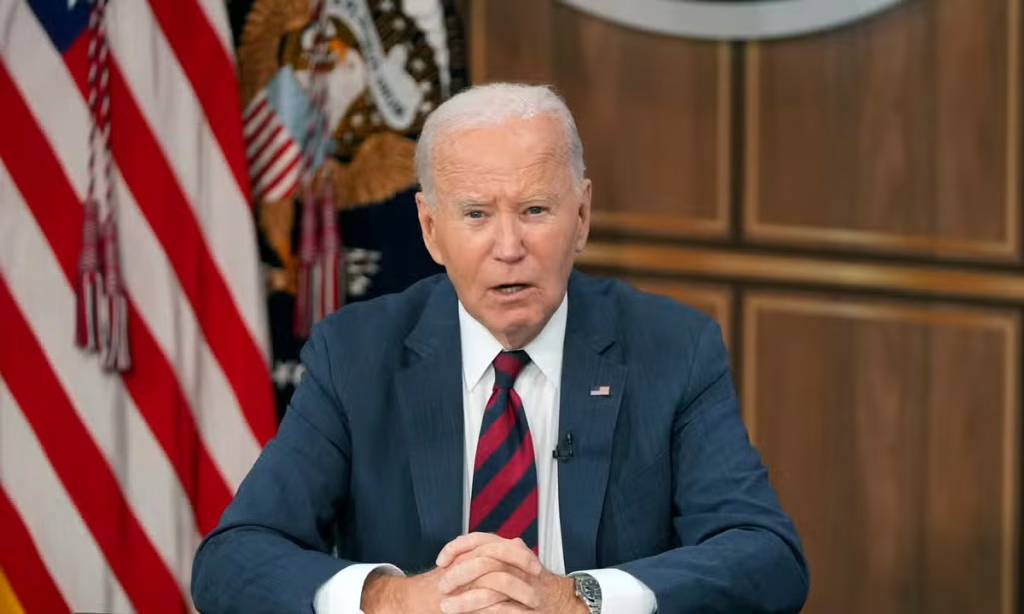President Joe Biden’s decision to reject the purchase of US Steel has angered Japan, one of Washington’s closest allies, whose companies are the largest foreign investors in the US.
Opponents worried that Nippon Steel would eliminate jobs despite claims to the contrary, while the Japanese company hailed the $14.9 billion transaction as a lifeline for its ailing US rival.
Given that US Steel is headquartered in Pennsylvania, a swing state, the 2023 deal was disclosed just before the presidential election and was opposed by both major contenders, Donald Trump and Kamala Harris.
The Committee on Foreign Investment in the United States (CFIUS), a federal panel, was unable to agree and blamed Biden in the latter days of his presidency.
Following Trump’s lead, Biden blamed the US steel industry’s decline on “national security” and unjust global trade rules, pointing to China as the world’s largest manufacturer.
Biden declared, “I have tripled tariffs on steel imports from China as a decisive step to level the playing field for American steelworkers and steel producers.”
The decision was deemed “incomprehensible” by Japan’s industry minister, and Prime Minister Shigeru Ishiba urged Washington to “explain clearly” its reasoning.

While Japan is a strong strategic and economic ally, the United States has previously prohibited acquisitions by Chinese corporations.
To oppose China, Washington is largely depending on Tokyo, and the US military maintains 54,000 soldiers in Japan.
According to Sarah Bauerle Danzman of the think tank Atlantic Council, it was the only instance in which the CFIUS had been used to block a merger without any connections to Chinese ownership.
Bauerle Danzman said that Biden’s choice is a “significant extension of how CFIUS has historically interpreted national security.”
The chief economist at the NLI Research Institute, Yasuhide Yajima, stated that Japanese companies will be concerned about the uncertainty of US policies.
“Now, worries will increase. For Japanese companies doing business there, particularly manufacturers, this will undoubtedly create a barrier, Yajima said to AFP.
According to US Chamber of Commerce president of international John Murphy, the ruling may “chill international investment in America.”
“The old Japan-bashing ideas based on Japan as an outlier still exist,” Takehide Kiuchi of the Nomura Research Institute said of Biden’s action.
In an online article, Kiuchi stated that this would have a detrimental effect on the economies of both Japan and the US since it might lead to a reduction in future trade with the US.
Official U.S. data shows that Japanese companies spent about $800 billion in the U.S. in 2023, more than any other nation and 14.3% of the total.
“Nearly one million American jobs are supported by the investment of our significant and trustworthy ally, Japan alone,” Murphy said in a statement.
The largest investors in Japan are also US companies.
According to business organisation Keizai Doyukai, Japan should diversify since protectionism is expected to get stronger under Trump.
It stated that to avoid being reliant on the United States, Japan “should strengthen cooperation with like-minded countries such as South Korea, Australia, the Philippines, and India.”
Allies’ confidence in the US as a “reliable partner” may be damaged by Biden’s decision, which “could open the door for increasingly dubious claims of national security,” according to Bauerle Danzman.
She claimed that this would impede efforts to create more robust supply chains for a variety of essential products beyond steel, such as vital minerals, electric car batteries, electronics, and biotechnologies.
Additionally, the absence of partners would make life much more difficult for the US steel industry, which contributes less than 5% of world production.
“Strengthening America’s domestic steel industry against the threat from China,” according to US Steel, the agreement would have strengthened the US steel supply chain.


